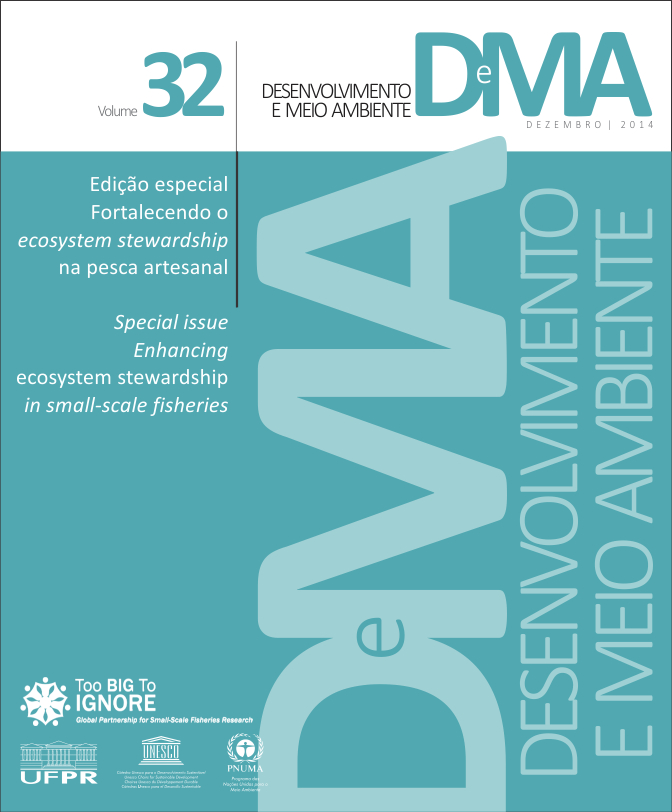Enhancing Ecosystem Stewardship in Small-Scale Fisheries: Prospects for Latin America and the Caribbean
DOI:
https://doi.org/10.5380/dma.v32i0.38819Keywords:
co-management, collaborative management, ecosystem approach, small-scale fishery, Latin America, CaribbeanAbstract
Despite recognition of small-scale fisheries (SSF) contribution to livelihood diversity and food security worldwide, a better understanding of their social and ecological dynamics is required. This paper is a synthesis of the main findings from the special issue “Enhancing ecosystem stewardship in small-scale fisheries” published in this journal. Contributors explored ecosystem stewardship in three dimensions: impacts, monitoring and stewardship. Results suggested that ecosystem stewardship encompasses collaborative action to foster: i) new perspectives on SSF management; ii) a broader perspective on managers and stakeholders – as stewards for implementing these new perspectives; and iii) enabling environments through partnership, networking, communication and collective action. This special issue is an output from the Too Big to Ignore (TBTI) Working Group 4 - “Enhancing the Stewardship”. TBTI is a global research network and knowledge mobilization partnership intended to better comprehend SSF contributions on issues such as food security and poverty alleviation, as well as the associated impacts of global changes, through the efforts of diverse partners around the world.
Downloads
Published
How to Cite
Issue
Section
License
Copyright on works published in this journal rests with the author, with first publication rights for the journal. The content of published works is the sole responsibility of the authors. DMA is an open access journal and has adopted the Creative Commons Attribution 4.0 Not Adapted (CC-BY) license since January 2023. Therefore, when published by this journal, articles are free to share (copy and redistribute the material in any medium or format for any purpose, even commercial) and adapt (remix, transform, and create from the material for any purpose, even commercial). You must give appropriate credit, provide a link to the license and indicate if changes have been made.
The contents published by DMA from v. 53, 2020 to v. 60, 2022 are protected by the Creative Commons Attribution-NonCommercial-NoDerivatives 4.0 International license.
DMA has been an open access journal since its creation, however, from v.1 of 2000 to v. 52 of 2019, the journal did not adopt a Creative Commons license and therefore the type of license is not indicated on the first page of the articles.




